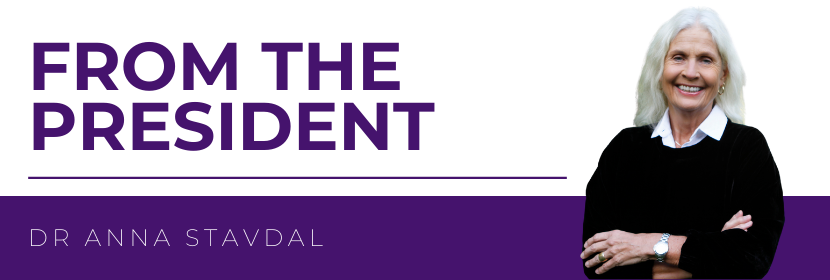From the President: July 2023


Read it in your own language using the google translate bar at the top of the page
Worldviews
The eye sees only what the mind is
prepared to comprehend.
Philosopher Henri Bergson
As I announced in March, WONCA is launching “The Global Core Values Project,” a worldwide brainstorming focused on the defining principles and values of Family Medicine. It’s very much on my mind.
How, I wonder, can we prepare for this important process? So far, I’ve come upon two good tips, both of which are focused on how we see the world.
Local / Global Perspectives
We Family Doctors are licensed and obligated to prevent, detect, diagnose, and treat disease; many of those we meet are also facing situational crises. Meantime, we keep our ear to the ground so we can register what`s happening around us. We bear witness to the impact that minor or major natural, and man-made, disasters have on our community. Societal changes, after all, are reflected in healthcare – and in Primary Care first.
Meantime, whether we’re aware of it or not, we experience and interpret this larger world from our own limited, local perspective. Which gets us only so far! What about other localities? It’s not so easy to see life through the eyes of people whose own limited, local perspective is vastly different from ours?
The WONCA President must travel. As we head toward the upcoming brainstorming, I’m sure it’s all the traveling I’ve been doing that has foregrounded the astonishing moments when a local perspective is cracked open by the world! Books, lectures, first-person accounts can all teach us about the resources and shortcomings of the world’s communities. But nothing drags our unrecognized, inaccurate assumptions, and projections, into the light as undeniably as actually going somewhere else, in person.
Thanks to so many far-away encounters with Family Doctor colleagues, representatives of other health professions, policy makers, and politicians, I’ve had my own worldview thoroughly challenged! That and all the eye-opening contacts I’ve had with patients, so-called ‘ordinary people’ immersed in contexts very different from my own.
I found it’s worth the effort – and, yes, the courage –required to realize and put words to the differences between us and other people, between our contexts and theirs. We’re moved closer to understanding both ourselves and our fellow human beings.
And So, To Tip Number One:
I recently came across an online tool called “Gapminder.” Its designers are an independent, educational, non-profit organization determined to fight global misconceptions. Free-of-charge, they offer a way to “Upgrade Your Worldview” through exploring the extent to which your assumptions about the world match the facts. (Or, I must admit, don’t match them!) You can quickly see how close your presumptions are to the verified facts about many areas: migration, the quality of education, poverty, demographic indicators, health indicators, international conflicts, threatened species…to mention only a few. You learn immediately how many other people answered right or wrong, based on results gathered from Gapminder’s tests of thousands of people. You may be surprised how many of us are simply unaware of basic facts.
We can choose to see the world as we wish it were. Or as we’re afraid it might be. But we’re obviously more likely to make good decisions if we know how it actually is.
I took the test, and I encourage all of you to do the same. It’s fascinating. Even fun. And perhaps, as they propose, “The world is not as bad as you think.”
For example ,what do you assume the facts tell us about this: “What share of the world`s population don`t have enough food to meet their daily needs?” The survey offers 3 alternatives: 11%, 29% or 37 %.
Just so you know, fully 79% of the responders get this wrong! Go to
https://www.Gapminder.org and see if you did.
Tip Number Two to Help Prepare for our Brainstorming:
Another source to help widen our perspective is “The World Values Survey” (WVS). Since 1981, a worldwide network of social scientists has conducted representative WVS national surveys in almost 100 countries. This global research project explores people's values and beliefs, how they change over time, and what social and political impact they have.
Over the years, these WVS results have demonstrated the key role that people's beliefs play in economic development, in the emergence and flourishing of democratic institutions, in the rise of gender equality and equity, and in the extent to which societies’ governments are effective.
You can start exploring at:
https://www.worldvaluessurvey.org/WVSContents.jsp
The relevance this has for Family Doctors is clear: a hallmark of our profession is our commitment to providing care to all, regardless of age, gender, ethnicity, sexual orientation, or religious beliefs. We’re fully aware that such aspects of our patients’ lives may be vitally significant to them. We need to take them into account if we’re to create healing relationships that are personal, based on trust, and able to endure over time – that is, if we are to fulfill another hallmark of our profession: continuity of care.
As Confucius said…
“Fortune favors the prepared mind.” Generally, diving into all of this has helped to broaden my worldview. In particular, my global view professionally has grown wider.
It’s never too late to have your own misconceptions corrected!
I look forward to engaging with you in our “Global Core Values Project" brainstorming.